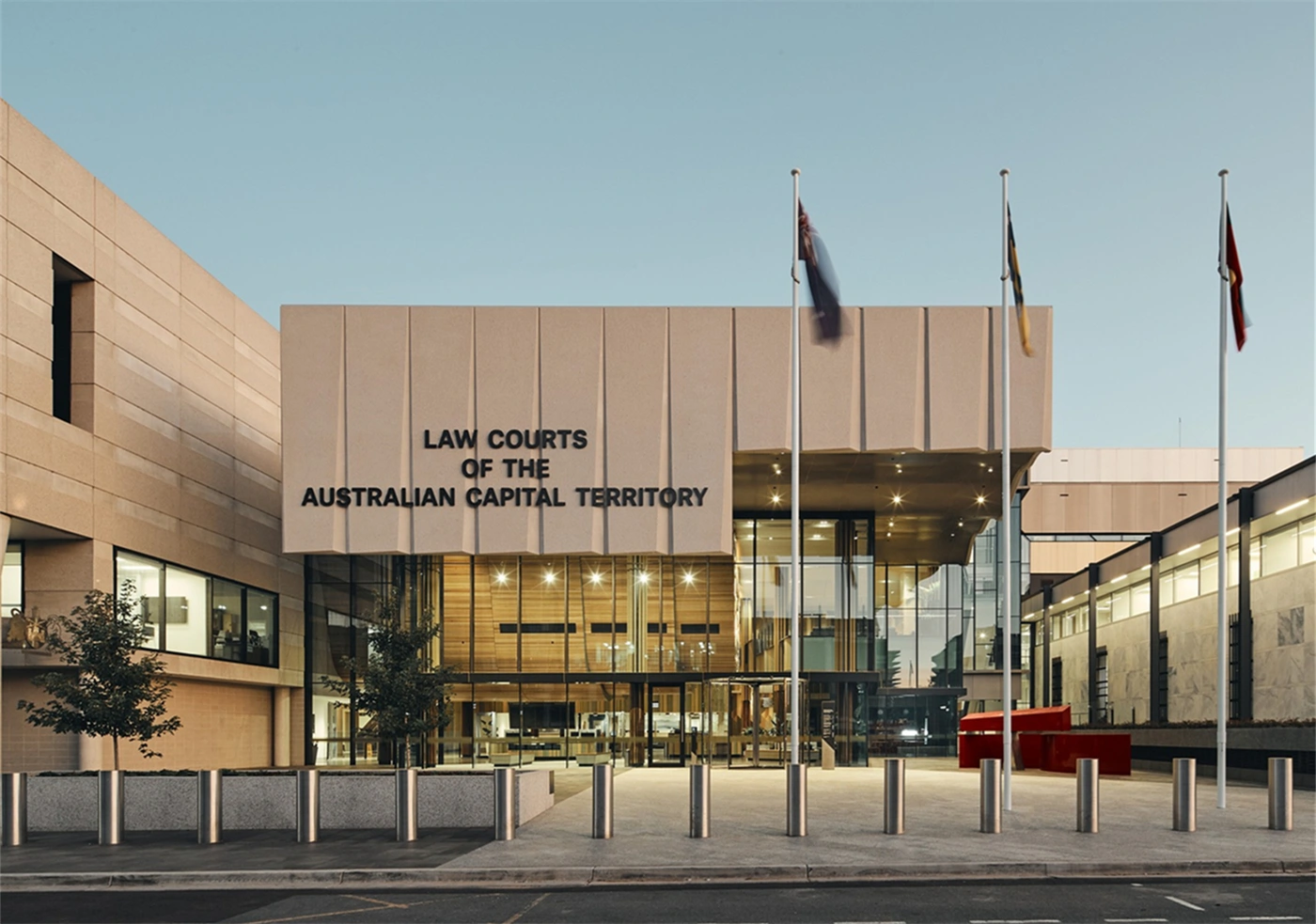
Understand What You're Facing While Charged with Possession of Proceeds of Crime
Possession of proceeds of crime is a serious financial offence that involves knowingly dealing with money or property obtained through illegal means. This offence can apply even if you did not commit the original crime.
Key points:
- You can be charged for holding, transferring, or using funds or assets derived from criminal activity
- The offence applies to both direct and indirect involvement, including helping others handle unlawful proceeds
- Authorities rely on forensic accounting and financial monitoring to trace suspicious transactions
If you are under investigation or have been charged, contact Brightstone Defence Criminal Lawyers for immediate legal advice and strong representation.
Possession of proceeds of crime is an offence under Section 193B of the Crimes Act 1900 (NSW) and Section 400 of the Criminal Code Act 1995 (Cth). This law criminalises knowingly dealing with or possessing money or property derived from illegal activities. The severity of penalties depends on the value of the proceeds and the level of intent.
“Deal with” includes to receive, possess, conceal, dispose of, bring or cause to be brought into NSW, or engage directly or indirectly in a transaction.
Criminal Assets Recovery Act 1990 (NSW)
Under the Criminal Assets Recovery Act 1990 (NSW), several civil orders can be made to recover assets believed to be the proceeds of serious criminal activity. These orders allow the state to restrain, forfeit, or demand payment of unlawfully acquired wealth, even in the absence of a criminal conviction.
- Restraining Order
A restraining order prevents any person from selling, transferring, or otherwise dealing with specified property, except as permitted by the order. In some cases, control of the property may be handed over to the NSW Trustee and Guardian. Police can apply for this order if they reasonably believe a person has been involved in serious criminal conduct and holds an interest in the property. The application must be supported by a sworn affidavit from a police officer. This type of order is often made to preserve property until a potential forfeiture order is decided.
Examples of serious criminal activity include drug trafficking, blackmail, illegal gambling, harbouring offenders, and homicide.
- Assets Forfeiture Order
The NSW Crime Commission may apply to the Supreme Court for an assets forfeiture order, which transfers ownership of restrained property to the state. The court may grant the order if it is satisfied, on the balance of probabilities, that the person engaged in serious criminal activity within the past six years. Once forfeited, the property can be sold by the NSW Trustee and Guardian.
- Proceeds Assessment Order
A proceeds assessment order requires an individual to pay the state an amount equal to the assessed value of benefits they received from criminal activity within the last six years. This order may be granted even if the specific assets no longer exist, as it focuses on recovering the value rather than the property itself.
- Unexplained Wealth Order
An unexplained wealth order compels a person to pay an amount to the state that reflects the value of their unexplained assets. To make the order, the Supreme Court must be satisfied there is a reasonable suspicion that the individual was involved in serious criminal activity at some point, and that their wealth, either current or previously held was acquired unlawfully.
检方必须证明的要素
For a conviction, the prosecution must establish beyond a reasonable doubt that:
- The accused was in possession of money or property – The funds or assets must be in their custody or control.
- The proceeds were derived from criminal activity – The assets must be linked to unlawful conduct.
- The accused knew, or was reckless as to, the criminal origin of the funds – Intent or knowledge of illegality is a key element.
可能的防御
Possible legal defences include:
- Lack of Knowledge – The accused was unaware the funds were derived from crime.
- No Criminal Intent – The possession was incidental, with no intent to facilitate a crime.
- Duress – The accused was coerced into handling the funds.
- Mistaken Identity – The accused was wrongly implicated in the case.
A skilled defence lawyer can challenge the prosecution’s case and provide legal strategies to protect your rights.
潜在的处罚
Penalties for possession of proceeds of crime depend on the severity of the offence. Possible penalties include:
- Fine – A monetary penalty imposed by the court
- Community Correction Order (CCO) – A supervised order with conditions
- Intensive Correction Order (ICO) – A strict alternative to imprisonment
- Imprisonment – Sentences can reach up to 20 years for serious cases
The final penalty depends on the case’s specific circumstances and the accused’s prior record.

法律程序
& 选项
The legal process for possession of proceeds of crime involves an investigation and charge by authorities, an initial court appearance where the accused enters a plea, a trial if pleading not guilty, and sentencing if found guilty, with legal representation being crucial at each stage.
恳求
无罪
If you deny the allegations, you may plead not guilty. Your lawyer can contest the prosecution’s evidence by:
- Demonstrating a lack of knowledge or intent
- Proving the funds were legally acquired
- Identifying procedural errors or unlawful evidence collection
If the prosecution fails to prove its case beyond a reasonable doubt, you will be acquitted.
恳求
有罪
Pleading guilty can sometimes result in a reduced sentence, as it demonstrates remorse and cooperation. Factors the court may consider include:
- The value and severity of the offence
- The accused’s criminal history and character references
- Any mitigating circumstances, such as acting under duress
Depending on the case, the court may impose a lesser penalty in exchange for an early guilty plea.
“犯罪所得”指的是直接或间接来自刑事罪行的财产或利益。这可以包括但不限于:
- 来自毒品贩运的金钱
- 使用非法资金购买的车辆或房屋
- 来自欺诈或骗局的加密货币
法律允许没收、没入和没收此类资产,在某些情况下甚至不需要刑事定罪。
根据《1900年新南威尔士州犯罪法》第193B条,如果一个人:
- 有意识地处理犯罪所得,并且
- 意图隐藏其来源。
根据s 193A,“处理”包括:
- 接收、拥有、隐藏、处置或使用所得;
- 参与涉及被污染财产的交易;
- 通过第三方或账户促进转账。
即使是被动行为(例如允许使用银行账户)也可能属于此条款的范围。
- 常见的与财产相关的罪行包括:
- AUSTRAC监控金融交易并报告可疑活动。
- 新南威尔士州警察、AFP和DPP共同合作:
- 启动犯罪所得程序,
- 冻结资产,
- 协调对欺诈、毒品和财产罪行的刑事调查。
是的。如果财产:
- 共同拥有但与犯罪有关,
- 转移给第三方(包括家人)以避免没收,或
- 用于促进犯罪行为,
它可能受到没收令的约束,除非根据相关法案能够证明无辜利益。
- 是的
如果您的财产根据《刑事资产追回法》被限制或受到没收,我们的团队可以质疑命令,主张无辜拥有权,并保护您的财务利益。我们有处理限制令、没收令和无法解释财富程序的经验。
不要在没有先与律师交谈的情况下回答问题或提供文件。立即联系Brightstone Defence,以便我们可以介入,保护您的权利,并代表您回应。
- 是的
犯罪所得和洗钱罪行在新南威尔士州和联邦法律下都被非常认真地对待。如果没有法律建议,您可能会承认有罪或犯错误,这可能损害您的案件。专业的刑事辩护律师可以从首次警察问讯到法庭代表引导您。
我们详细检查证据,质疑财产是否真的符合“犯罪所得”的条件,并测试检察官证明知识或意图的能力。我们的律师还与检察官谈判,在可能的情况下减少或撤销指控。
“犯罪所得”指的是直接或间接来自刑事罪行的财产或利益。这可以包括但不限于:
- 来自毒品贩运的金钱
- 使用非法资金购买的车辆或房屋
- 来自欺诈或骗局的加密货币
法律允许没收、没入和没收此类资产,在某些情况下甚至不需要刑事定罪。
根据《1900年新南威尔士州犯罪法》第193B条,如果一个人:
- 有意识地处理犯罪所得,并且
- 意图隐藏其来源。
根据s 193A,“处理”包括:
- 接收、拥有、隐藏、处置或使用所得;
- 参与涉及被污染财产的交易;
- 通过第三方或账户促进转账。
即使是被动行为(例如允许使用银行账户)也可能属于此条款的范围。
- 常见的与财产相关的罪行包括:
- AUSTRAC监控金融交易并报告可疑活动。
- 新南威尔士州警察、AFP和DPP共同合作:
- 启动犯罪所得程序,
- 冻结资产,
- 协调对欺诈、毒品和财产罪行的刑事调查。
是的。如果财产:
- 共同拥有但与犯罪有关,
- 转移给第三方(包括家人)以避免没收,或
- 用于促进犯罪行为,
它可能受到没收令的约束,除非根据相关法案能够证明无辜利益。
- 是的
如果您的财产根据《刑事资产追回法》被限制或受到没收,我们的团队可以质疑命令,主张无辜拥有权,并保护您的财务利益。我们有处理限制令、没收令和无法解释财富程序的经验。
不要在没有先与律师交谈的情况下回答问题或提供文件。立即联系Brightstone Defence,以便我们可以介入,保护您的权利,并代表您回应。
- 是的
犯罪所得和洗钱罪行在新南威尔士州和联邦法律下都被非常认真地对待。如果没有法律建议,您可能会承认有罪或犯错误,这可能损害您的案件。专业的刑事辩护律师可以从首次警察问讯到法庭代表引导您。
我们详细检查证据,质疑财产是否真的符合“犯罪所得”的条件,并测试检察官证明知识或意图的能力。我们的律师还与检察官谈判,在可能的情况下减少或撤销指控。
成功案例和文章
Brightstone Defence全年提供有针对性的刑事辩护服务,并建立了良好的成功记录。
认识我们的律师
世界一流
代表
100 多条 5 星评价
为每个案例量身定制的个性化法律策略
刑事辩护法领域公认的领导者
免费初步咨询和案例评估
在高风险和复杂的案件中证明是成功的
即时获取预估报价
和免费咨询会议
面临刑事指控?我们经验丰富的辩护律师随时为您提供帮助。立即预订免费咨询,讨论您的案例并了解您的选择。







